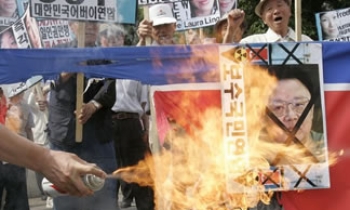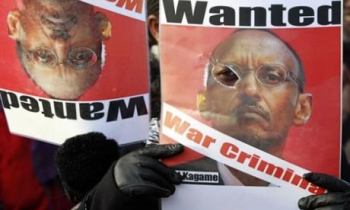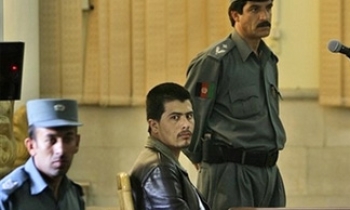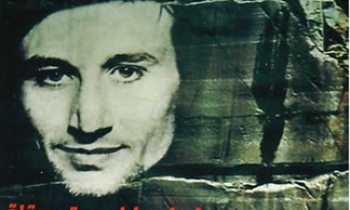PRAGUE, April 28, 2006 (RFE/RL) -- "Today, there is such a situation that the [Uzbek] government has put all of the media under its control. After the events in Andijon, the authorities understood that the independent press is, one could say, their main enemy," says Galima Bukharbaeva, an Uzbek journalist who fled the country because of her independent reporting after the May 2005 violence in Andijon.
Similar attitudes prevail in neighboring Turkmenistan, where all media is state-controlled.
Authorities in the Central Asian countries that do have independent media have shown an alarming tendency to use the law to stifle unwanted views.
Writing The Laws
In Tajikistan, the Organization for Security and Cooperation in Europe (OSCE) organized a group of journalists in 2003 to discuss reforms to the country's media laws. Nuriddin Qarshiboev, director of the National Association of Independent Media in Tajikistan (NANSMIT) said the group recommended amendments to the media laws but their comments fell upon deaf ears in the parliament.
"Journalists gathered from around the country to draft new laws, but parliament didn't accept any," Qarshiboev said. "There were many suggestions about changes to the [media] laws, but none were adopted."
Tajikistan, which will hold a presidential election in November, further tightened control over the media last year. Parliament passed a law that obligates foreign embassies and organizations working in Tajikistan to report all contacts with the media or political or civil activists.
Enforcing The Laws
In all the Central Asian countries, the authorities are able to manipulate the courts to make sure the harsh laws are applied as they deem appropriate. Journalists are regularly in courtrooms in Kazakhstan, Tajikistan, and -- before the ouster of President Askar Akaev last year -- in Kyrgyzstan, defending their stories.
Oliver Money-Kyrle, director of the Brussels-based International Federation of Journalists, said the independent media cannot expect much from the judicial systems in the Central Asian states.
"The quality of the judiciary and the fact that they are essentially corrupt and in the hands of, or controlled by, local government," Money-Kyrle said.
Tamara Kaleeva, executive director of Adil Soz, the International Foundation for the Protection of Freedom of Speech in Kazakhstan, agrees.
"We have a serious problem with judicial persecution of the media," Kaleeva said. "These are criminal cases and the biggest obstacle we see from year to year are civil and administrative cases [against the media], mainly accusations of insulting the honor and dignity [of government officials] and the crazy, astronomical fines imposed for 'moral damage.'"
These fines are often exorbitant enough to cause the closure of independent media outlets. Accusations of unpaid taxes or irregularities in a media outlet's registration are also given common reasons for closing down independent media.
The Region's Bright Spot
Kyrgyzstan is the brightist spot in Central Asia, although its record is far from unblemished. When Kurmanbek Bakiev became president last year he vowed to make all media in Kyrgyzstan independent. Media groups have recently complained that Bakiev has not followed through on that pledge.
Rina Prijivoit worked for years as an independent journalist in Kyrgyzstan. Her newspaper was closed down several times by court decisions in the Akaev era yet always managed to reappear under a new name. She is now Kyrgyzstan's ambassador to Austria, the Czech Republic, and Hungary. She praised Bakiev's media policies.
"In the republic...are 900 media outlets registered: 631 newspapers, 191 magazines, 35 radio, 39 television stations, 25 broadcast companies, and more than 1,000 websites working," Prijivoit said. "Illegal restrictions have been lifted on the right to peaceful rallies and demonstrations. The opposition press is not experiencing any pressure from the authorities, as was so often the case in previous years."
Central Asian governments also manipulate complex registration processes to hinder the work of media organs.
"As concerns independent media, the main problem is getting a license," said NANSMIT's Qarshiboev. "For the last year and a half, no one except one company could get a license."









